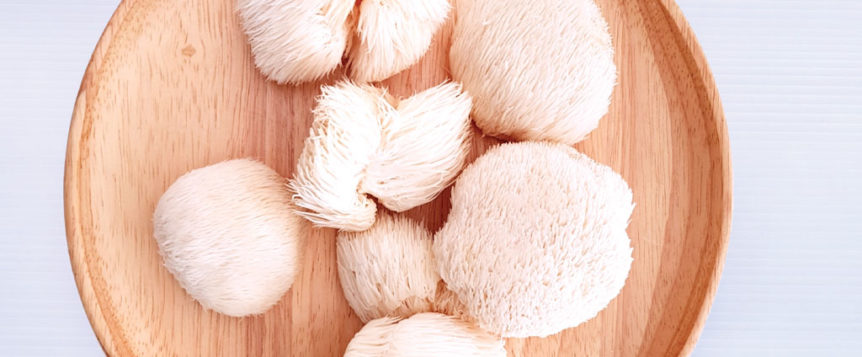What is it?
Lion’s mane (Hericium erinaceus) is one of the most unique-looking mushrooms, with its unbranched body of icicle-like spines and soft white tissue. Used for hundreds of years in traditional Chinese medicine (TCM) and also native to North America, it was once considered so special that it was reserved only for Chinese royalty. An “ultimate tonic” in TCM, lion’s mane is believed to reach all the body’s organ systems—heart, liver, spleen, lung and kidney—as well as the brain, providing a full-body benefit from one single herb, something very few herbs can claim. In Western medicine, all edible mushrooms are known for their high content of polysaccharides, which exert their impressive benefits by stimulating the immune system. Lion’s mane is of the greatest interest and has the most research behind it.
Use it for
Known mostly for its positive effects on human brain health, specifically anxiety, depression and Alzheimer’s disease, lion’s mane is a powerful antioxidant that has also been found in in vitro and animal studies to improve diabetes, strengthen digestive health and even help prevent heart disease and cancer.
The Science
A 2020 review study found that lion’s mane helps with depression (and may be a comparative alternative to conventional antidepressant drugs) as well as anxiety, sleep disorders and binge eating. Another 2020 study, this one a double-blind, randomized, placebo-controlled clinical trial, found that after 49 weeks of treatment with lion’s mane, participants with mild Alzheimer’s scored significantly higher in “mental state” and “activities of daily living” categories. Other recent studies have looked at lion’s mane’s effects on cancer cells and have established the need for more investigation as a possible alternative cancer treatment.
How to take it
Available as a dried herb by the gram or in capsule form. A common, studied dose for general well-being is 1.5 to 2 g (about a half teaspoon) or 3 capsules (about 500 mg each) daily of lion’s mane. When actively dealing with a condition, increase this dose to a half teaspoon or 3 capsules (about 500 mg each) up to three times a day.
Did you know?
Lion’s mane is also known as the bearded tooth mushroom or the pom-pom mushroom.

